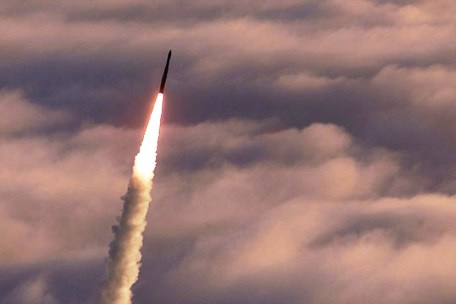Attack on Iran: Intentions, capacities and limitations

By: Seyyed Mohammad-Kazem Sajjadpour
IAEA Chief Yukia Amano's latest report on Iran’s nuclear program comes amid Israel’s and the West’s psychological warfare against Iran, and their apparently non-stop threats to attack Tehran. Although whatever stated in the report is, for the nuclear experts, obsolete redundant material gathered before 2003, as Amano has confessed himself, this question may be raised that what the intention of the propaganda is. The present review is primarily an effort to analyze the current anti-Iran propaganda and to discuss the intentions, capacities and limitations of Israel, the US and other actors.
Intentions
The two concepts of intention and capacity are often discussed in strategic debates. Having the exact data about a political entity’s capacities, strategists can evaluate its power and estimate its operational capacity. Some strategists look at the bigger picture, arguing that power and capacities should not be the only factors regarded, and intentions are also important, as they direct the facilities and actual power. While an actor may not have considerable power in a particular temporal situation, its intention should be recognized. Although this may be a complicated process, there are certain mechanisms to tease it out in certain settings such as the IAEA. West’s speculation of Iran’s intentions is fundamentally flawed, but their frame of reference can be analyzed in order to clarify their behavior.
The bottom line of the US and Israel’s arguments on Iran’s nuclear program is that regardless of Iran’s nuclear capacity, the intention of the Islamic Republic also counts; although this argument is not legally and strategically sound.
The intentions of the US and Israel in organizing the anti-Iran campaign could be:
1- Limiting Iran’s power and preventing its development: undoubtedly, the main purpose of all actors is limiting Iran power strictly. Through propaganda, they intend to create an atmosphere to prevent Iran from development and turn into a regional power.
2- Demonizing Iran for the regional states to consolidate the grounds for their immediate military presence: simultaneous with the propaganda, it was announced that the US administration will submit a bill to the congress authorizing Bunker Buster’s sale to the United Arab Emirates plan, a plan which could not be realized without ‘inventing’ Iran as a regional threat. Note that the US military withdrawal from Iraq was compensated with their increasing presence in bases provided by the [Persian] Gulf Cooperation Council members. Increasing presence of Washington in the southern coast of Persian Gulf needs rational and strategic excuses; hence ’ran's portrayal as a threat to sell weapons to these countries.
3- Multilateral and multilayered crises in Israel: Following the dissolution of the bipolar order and the successive intifadas in the Occupied Territories, Israel has faced an identity crisis, substantiated by sociologists of the country. One solution to fill the existing gaps in Israel is to create a formidable existential threat. Iran is used in regional security debates and also domestic issues of Israel for this purpose.
4- Domestic pressure on Obama to impose more sanctions against Iran: this is mainly exerted by pro-Israel lobbies. To paraphrase Patrick Buchanan’s words, the US Congress is a part of the US territory occupied by Israel. Netanyahu pressurizes Obama’s government to align his policies with those of Tel Aviv, particularly in the current situation in which the Israeli statesmen are facing fundamental problems in the region. Sanctions against Iran are one key objective of these pressures. Considering the risks of a military attack on Iran, Washington had to accept the idea of imposing more sanctions against the country, which could partially satisfy the goals of the Israeli strategists.
According to Kishone Mohbubani in Guardian, Israel faces a diplomatic intifada in the international arena: the entire region and the world have risen up against Netanyahu regime and its policies; evident in the embarrassingly publicized conversation between Obama and Sarkozy during the G20 Summit. Palestine’s membership bid in UNESCO and the UN, the Arab Spring and the Islamic Awakening have instigated fundamental regional crises against Israel. referring to Iran as the greatest regional threat is to cover up domestic and foreign challenges.
Capacities and Limitations
Undoubtedly, the realization of these intentions is not that easy for the US and Israel, as the current situation does not provide the desired context. The news published on military operations bespeak that Washington and Tel Aviv have devised different military scenarios for several countries, including Iran. The United States has at least carried out feasibility studies in this regard Such as the one conducted by Leif Eckholm the for Hoover Institution, titled “Invading Iran: Lessons from Iraq”, which reveals that the conducted feasibility studies suggest the complexity of attacking Iran, even with a mere focus on its nuclear facilities.
The key limitation in this area is that Iran is an influential actor, never leaving any attack unanswered. Iran’s reaction has been also widely discussed as a sensitive challenging issue that, as some of strategists argue, may lead to an all-out regional war. In addition, limitations imposed by the dire economic situation are important even to Israelis: one of the main Israeli financial institutions, Clal Finance, has recently published a report titled as “The Iranian Issue through Economic Eyes” in which the author, Amir Kahanovich, argues that an attack on Iran will be primarily costly for Israel in an unimaginable way and would also wreck havoc on the oil markets, increasing the price of each oil barrel by 250 USD.
Calls for sanctions against the Iranian Central Bank followed enthusiastically in the US were abandoned by the government and the Congress, as they would lead to an oil market crisis and increase the oil price. Regional limits are another concern. Against the shared intentions of Israel, the US and other Western countries, the unknown contingencies are a great obstacle against any threats.

